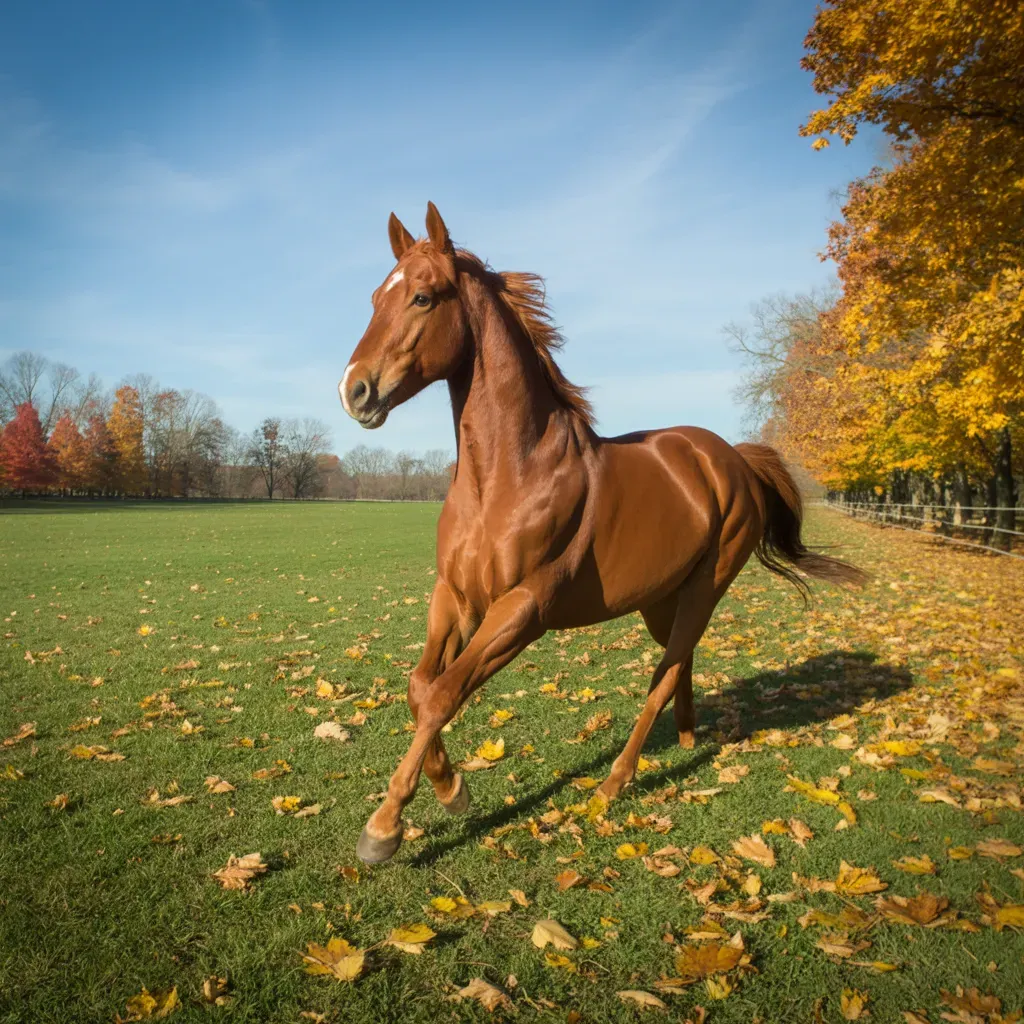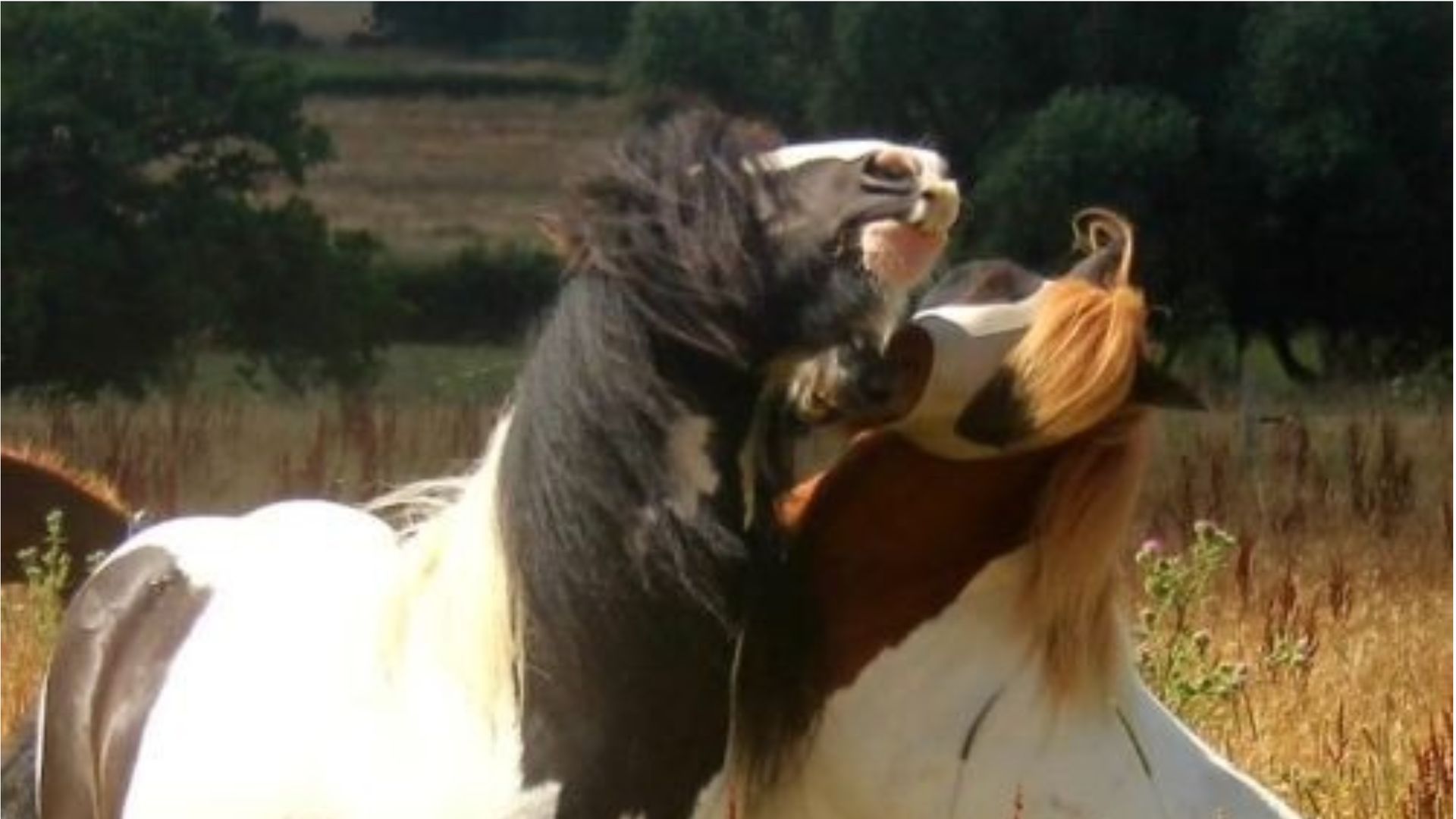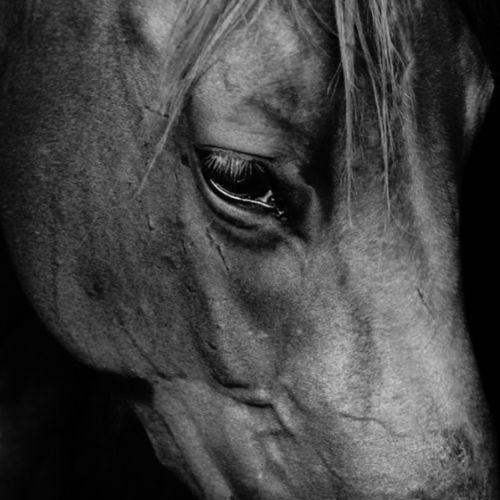My horse has lost his mojo - how do I get his YeeHah back?
I'm frequently asked a similar theme - "My horse is lacking energy - what can I do?"
Of course we go into the background, history, any recent pharma meds, current feed (of course!), and nine times out of ten there's a healthy, happy horse, a good routine going on and a natural, species-appropriate, nutrient-rich feed system in place, with no obvious reason as to why Ned no longer wants to Go.
Well, I’m putting money on it that it's all about nutrient-deficiency. But wait! (I hear you say) - you just said the feedbowl was nutritious! True. I did. But what I didn't mention was the likelihood that those nutrients weren't getting absorbed, because life's toxins have got in the way and sludged everything up. Which means ... poor immunity.
As I say in our CARE Immunity Programme section on the website, “The underlying cause of most chronic disease is the long-term deficiency of micronutrients.” And fortunately there's an easy solution to this.
Firstly, while in the perfect world a horse can thrive perfectly well on their forage, in this world they can’t, simply because our soils are so nutritionally depleted. The lack of nutrients in the soil translates to the forage/crop that is grown in it, and boom – the health of whomever then consumes that crop reflects a direct nutrient-result of the plant. Which, whether human or horse, ain’t great. In this day and age, with mass chemical fertilisation, pesticides and GMO soaked in Glyphosate, it’s no surprise … You know the story; I've banged on about it enough ...
Second, those toxins, and this is sadly all down to the world we live in now, and bar doing everything we can to reduce our toxic load, our environment is still a highly toxic place. We’re bombarded with toxic materials from every front, and once in the body – and be assured they’re going to come in – they're stored in tissues and cells, right down at molecular level throughout the body, and they'll affect Every-Single-One of the body’s systems, including the systems that life itself depends on - immune, digestive, nervous and circulatory systems. As well as agri and GMO waste, we have industrial waste, phone-mast radiation, our rivers are sick, our trees are dying, our air's filled with chemtrails and pollution, and don't even get me started on the plastic garbage-trail in our oceans.
My 2nd favourite 'M'-word - again 😉
So what happens physiologically? These toxins get into our bodies at cellular level, and it’s all about damage to the ‘mitochondria’ - my second favourite M-word (Microbiome's my first, I mean, it's a no-brainer given) which are the cells’ incredible power plants where all the action happens. They are literally the power-producers and are basically where 'metabolism' - the complex biochemical process by which the body converts what we eat and drink into energy - happens. So, when the mitochondria aren’t working properly, metabolism runs less efficiently and can even shut down.
Problems occur because these powerful cellular energy producers are incredibly sensitive and easily damaged, and when this happens we’re talking low energy, fatigue, memory loss, pain, anxiety, rapid ageing, and so on. In human health, malfunctioning mitochondria have been linked to diabetes, heart disease, Alzheimer’s disease, Parkinson’s disease. Fatigue is the most common symptom of poorly functioning mitochondria, and tends to be the main reason we all feel more tired as we age. So, making sure the mitochondria are functioning properly is crucially important.
The mitochondria work round the clock throughout the entire lifetime of the organism, whether horse or human, but they depend on a supply of raw materials - chemicals and nutrients, all in the correct ratios. And ... they're vulnerable. Inappropriate (junk) foods starve them; environmental toxins and stressors overburden them, making their operation sluggish and even damaging them. The body can rally itself from its own resources for a while, but if cell respiration rapidly declines, the body’s natural defences dwindle. Cue fatigue and reduced performance, and if you’re really unlucky the chronic stress-cycle begins.
For the full M-Word story, we’ve got this covered for you in our CARE Immunity Programme/Fix the cell to get well - Micronutrients & The Mitochondria page.
What to do? Check the feedbowl and detox
Much as we'd love it, just a forage diet (summer grass and 24/7 hay/haylage in winter) isn’t going to provide all the necessary nutrients to keep the mitochondria thriving – in days of yore pre intensive farming, yes, but not these days. So, we need a feedbowl, but not an overstuffed sugary bowl of C.R.A.P (not me being potty-mouthed - stands for Carbs/Refined/Artificial/Processed) from a shiny bag with a shiny horse on front, promising you allsorts (of rubbish). You just need a healthy feed ‘carrier’ in the feedbowl, a quality grass-forage fibre feed/chaff, palatable enough to carry the missing nutrient nuts-and-bolts from the forage diet.
This means a mineral/vitamin supplement to put back the forage deficiencies (see our EquiVita range), micronised linseed to top up the deficient levels of the EFAs, and sodium/chloride via salt. Or, go for our VitaComplete range which include the lot, especially if the diet includes hay.
Again we’ve got you covered on the website here – have a look at our ‘Feeding our Horses’ section, and specifically the ‘Why what we feed has to be right’ page.
Finally, we need to clear out the toxin overload, so it's back to the D-Word again - see our Detoxification page, and just for fun have a read of my favourite M-word - our Microbiome page – it's eye-poppingly-opening stuff!
Originally posted 16.9.20










